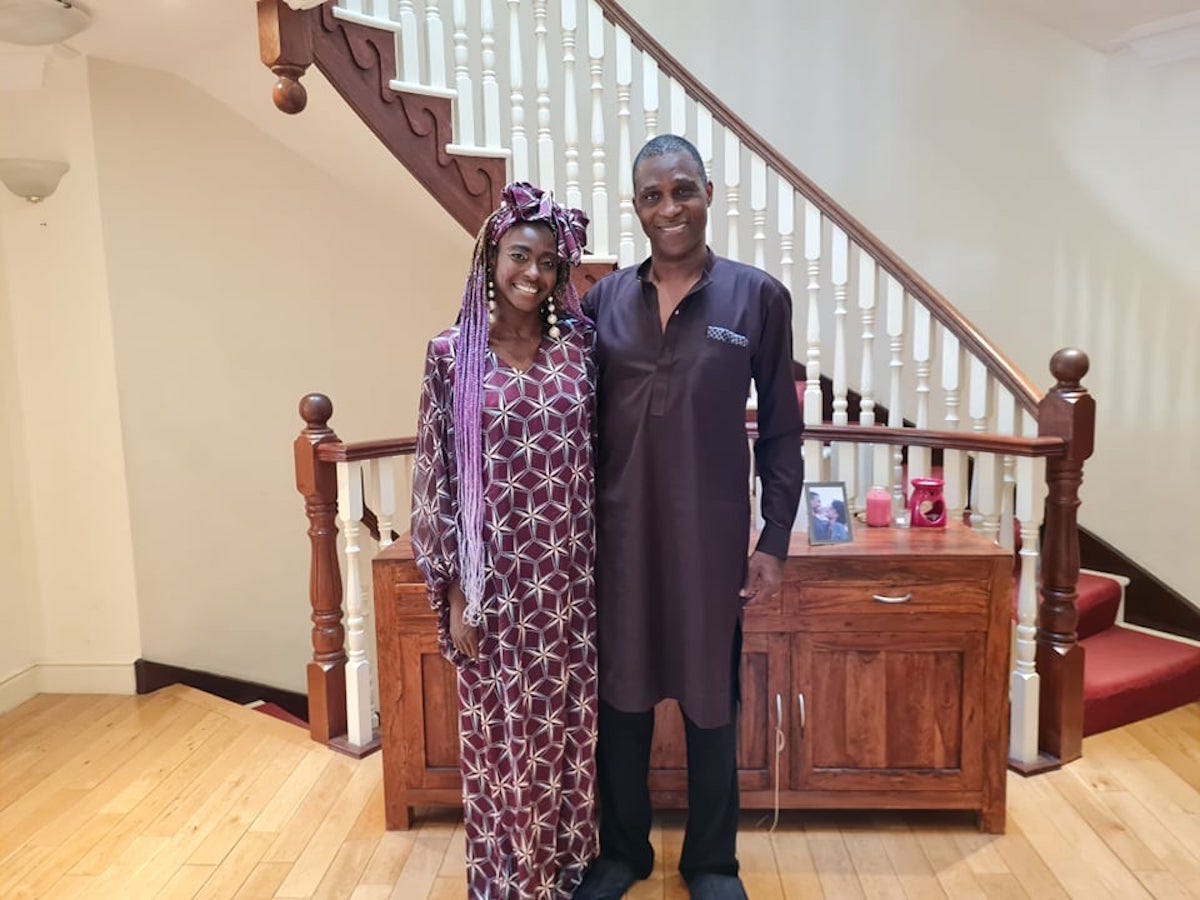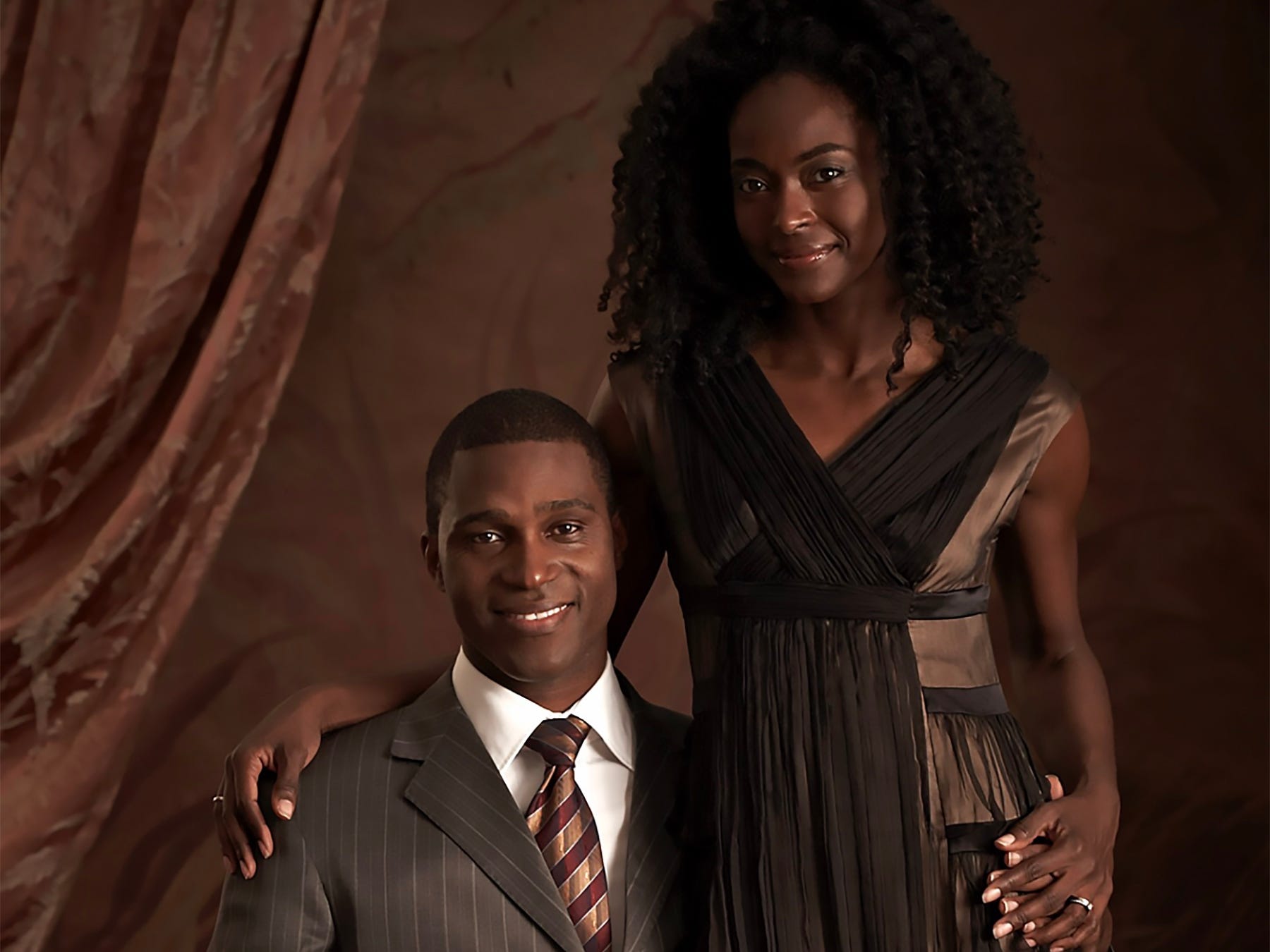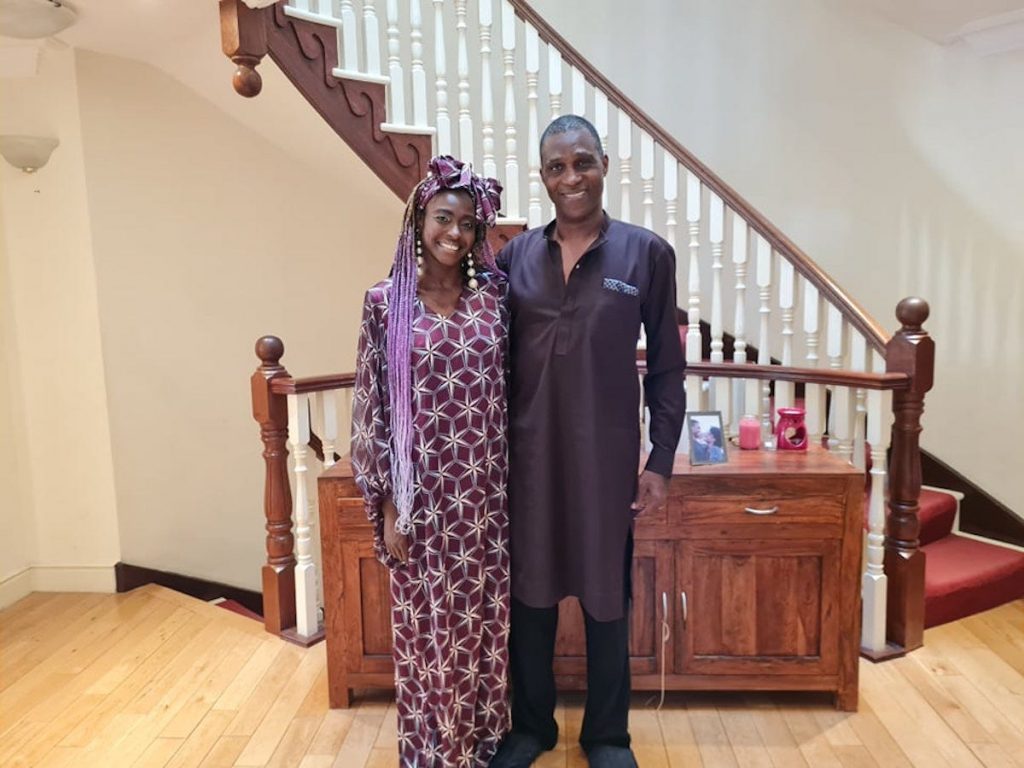
Mikhaila Friel/Insider
- Insider spent the day with Nigeria's Prince Kunle and Princess Keisha at their home in London.
- The couple, who compare themselves to Harry and Meghan, are from the Arigbabuowo ruling house.
- Kunle says he turned down being king four years ago in order to preserve his family's freedom.
- Visit Insider's homepage for more stories.
I didn't curtsy when I met Prince Kunle and Princess Keisha Omilana of Nigeria for the first time. Nor did I bow my head, or do any of the things you're supposedly meant to do when greeting royalty.
But then again, the Omilanas aren't like most royal couples.
Kunle was raised as the crown prince of the Arigbabuowo ruling house in Nigeria but has spent most of his adult life in the US and Europe. He became the first Black person in Europe to create their own TV network – the now-defunct Inspiration TV – in the 1990s, before meeting Keisha, an American model, in New York City in 2004.
Keisha and Kunle have lived in London for the past five years. Four years ago, they say they received an offer to rejoin royal life, but they're determined to keep that door closed.
On arriving at the Omilanas' London residence for our interview in September, I wasn't welcomed by staff, but by Keisha herself, who was wearing a purple print dress, matching headband, and lilac braids that spilled down to her waist.
She informed me that Kunle would make lunch for us that day, even though she said it's often considered against Nigerian culture for men - especially royal men - to cook. It's his "guilty pleasure," she said, shortly before Kunle himself arrived from upstairs. He greeted me with a warm smile and a handshake.

David White
Prince Kunle says he turned down being king of the Arigbabuowo ruling house 4 years ago
Before we devoured the salmon, rice, and prawns that Kunle made for lunch, Keisha said grace. Having a shared faith, the Omilanas later told me, is fundamental to their relationship.
As we ate, Kunle told me that he was asked to be king of his ruling house four years ago, but said no. I almost spat out my salmon upon hearing the revelation.
"I remember my mother-in-law calling and telling me what that would mean, and she's saying how I can't call him 'baby' anymore," Keisha said. "He's no longer 'my sweetheart.' She said, 'You do realise if you say yes, you are basically giving your husband away.'"
Keisha added that if Kunle became king, they would no longer be "sleeping in the same bed," she wouldn't be allowed to wear bikinis, and they would have to adhere to strict daily schedules.
"That's the beauty of being a royal but living in a country that you are not the royal of - that's why Prince Harry is where he's at," Keisha said, referencing the Duke and Duchess of Sussex's move to California.

Samir Hussein/WireImage/Getty Images
"Even though [Harry] wasn't about to be king, there was no freedom to love who he loved, to be who he wanted to be... it all goes down to freedom, which is priceless to some people," she added.
The Omilanas and Sussexes have a lot in common
Nigeria's traditional rulers were stripped of their constitutional power in 1963, however their descendants "serve as the local custodians of law and order," as the Lagos-based photographer George Osodi wrote in The Guardian in 2016. And nobody knows the exact number of monarchs there are in Nigeria, the BBC's Nduka Orjinmo reported in 2020. These monarchs are "nevertheless widely respected as custodians of both religion and culture," Orjinmo added.
Although the British monarchy operates in a different way - working royals born into the UK's constitutional monarchy are tasked with representing the country at state events at home and around the world - the Omilanas and the Sussexes are in a similar position as royal figures who have stepped back from that life.
While the Omilanas seem to enjoy their freedom from royal life, like the Sussexes, they're particular about which members of the press they interact with. Harry and Markle were criticized when they agreed to a sit-down interview with Oprah Winfrey earlier this year after previously asking for privacy from certain tabloids.
Keisha and Kunle are similarly private about which members of the press they speak to. "It's not like you first call, and boom, you're in my home," Keisha said. "You have to be protective, you have to guard yourself."
Even with a guard up, the Omilanas seem to have settled happily into their life in London. As I sat in their dining room, filled with books and photos, and enjoying the lunch Kunle had made, it felt like being in any other family home.
The couple may not plan on returning to Nigeria anytime soon, that could be different for future generations of Omilanas, according to Kunle.
"Things are changing slowly," Kunle said. "Probably my grandchildren, maybe one day one of them will become king, as long as that change is there."

